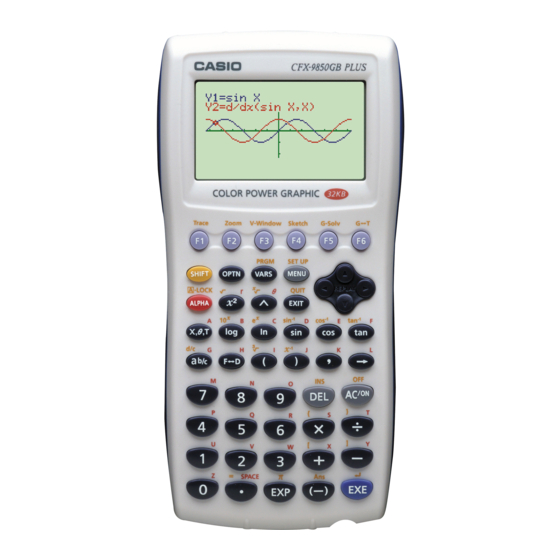Casio CFX-9850GC PLUS Graph Manual - Page 9
Browse online or download pdf Graph Manual for Calculator Casio CFX-9850GC PLUS. Casio CFX-9850GC PLUS 12 pages. 6. matrix calculations
Also for Casio CFX-9850GC PLUS: Product Catalogue (16 pages), Specifications (1 pages), Communications Manual (13 pages), Program Manual (18 pages), Read This First Manual (13 pages), Function Manual (14 pages), Graph Manual (8 pages), Graph Manual (6 pages), Graph Manual (12 pages), Graph Manual (12 pages), Graph Manual (12 pages), Graph Manual (10 pages), Calculations Manual (13 pages), Calculations Manual (18 pages), Calculations Manual (15 pages), Complex Numbers Manual (6 pages), Calculations Manual (6 pages), Calculations Manual (20 pages)

